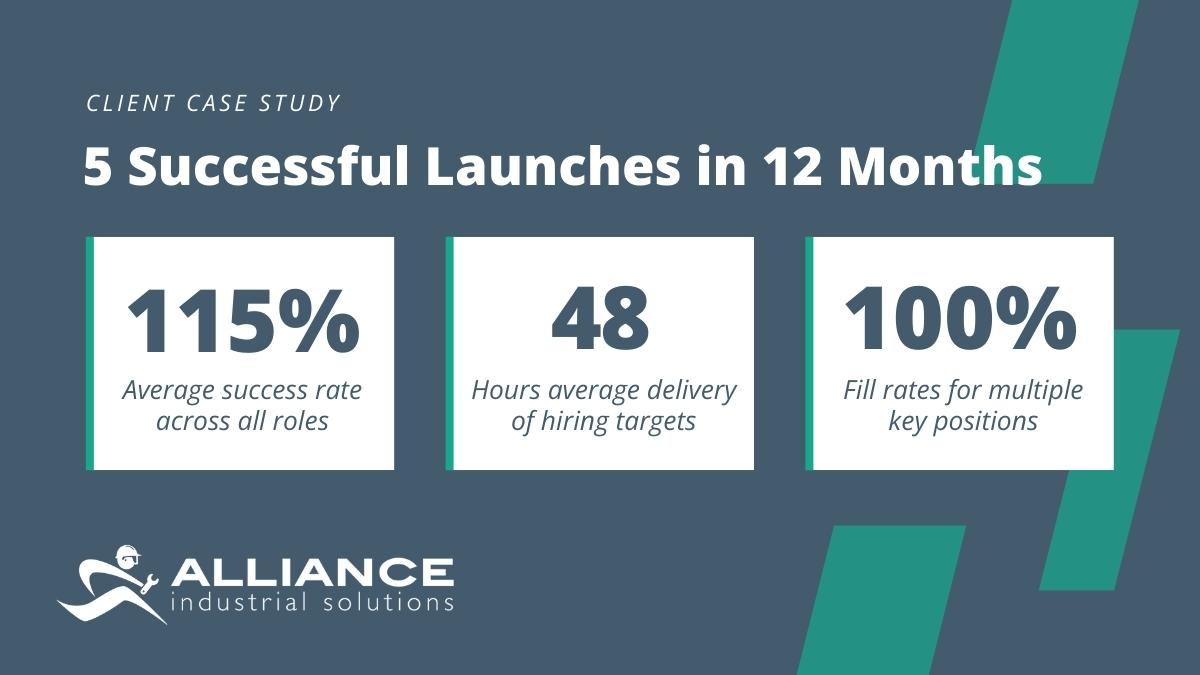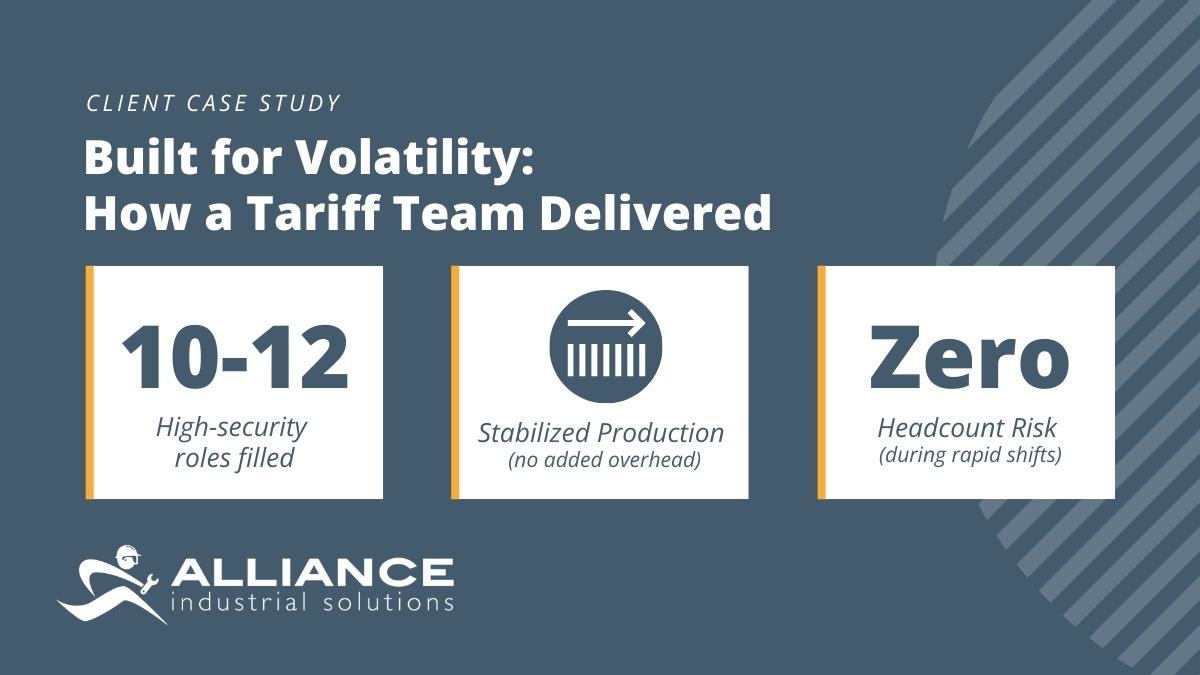Ask anyone in manufacturing, and they’ll tell you two things are certain: our industry is ever-evolving, and the demand for skilled workers keeps growing. Since 2010, the U.S. has added over 700,000 manufacturing jobs, with projections suggesting 3.5 million more could open up over the next decade.
However, the challenge of filling these roles with qualified candidates remains a pressing issue for many manufacturing and industrial employers.
If you’re struggling to find skilled workers, one solution could be to focus on hiring veterans. Luckily there are plenty of resources available to hiring managers, so let’s take a deeper look.
Why Veterans Should Be on Your Workforce Radar
While the unemployment rate for veterans has improved significantly in recent years, dropping to just 2.6% in 2023, there are still thousands of transitioning veterans eager to start new careers.
These service men and women bring a wealth of transferable skills, leadership experience, and work ethic that make them an excellent fit for manufacturing roles. Consider the following:

1. Transferable Skills for Modern Manufacturing
Veterans are trained in a wide variety of technical and operational skills that easily carry over to the manufacturing sector. While many military personnel have experience with machinery and technology, today’s veterans are also skilled in advanced fields like robotics, logistics systems, and cybersecurity. These skills are increasingly valuable as manufacturing embraces automation and digital transformation.
By hiring veterans, you can bring in candidates with the technical expertise needed to operate, troubleshoot, and maintain modern manufacturing equipment, helping to future-proof your operations.
2. Proven Leadership and Adaptability
The military instills leadership qualities at every rank. Veterans are trained to lead teams, manage resources, and make decisions under pressure—all essential skills in a fast-paced manufacturing environment. If you’re looking for employees who can step into leadership roles and help guide your workforce through challenges, veterans are an ideal choice.
Beyond leadership, veterans are also highly adaptable. Their military training teaches them to adjust quickly to new situations, technologies, and processes, making them well-suited to the ever-evolving demands of modern manufacturing.
3. Strong Work Ethic and Teamwork
Military personnel are known for their dedication, discipline, and focus—qualities that translate directly into a strong work ethic. Veterans are taught to work diligently, pay attention to detail, and remain committed to their mission. This makes them dependable employees who are focused on quality and safety, traits that are critical in manufacturing.
Additionally, veterans are excellent team players. They understand the importance of collaboration and are skilled in working within diverse teams. This can enhance your workplace culture and improve overall productivity.

4. Valuable Soft Skills
In addition to technical expertise, veterans bring essential soft skills to the table. They excel at problem-solving under pressure, are highly resilient, and know how to communicate effectively across teams. These skills are critical in today’s manufacturing world, where quick decision-making, teamwork, and adaptability can mean the difference between meeting production goals and falling short.
5. Tax Credits and Government Support
Hiring veterans can also bring financial benefits to your company. Programs like the Work Opportunity Tax Credit (WOTC) offer tax credits for hiring veterans, with higher credits available for veterans who have been unemployed for extended periods or who have service-connected disabilities.
Additionally, there are numerous government-backed initiatives, such as the Department of Defense’s SkillBridge program, which connects transitioning service members with civilian employers for job training and internships. These programs can help you find skilled workers while reducing hiring costs.
6. Inclusive Hiring and Diversity Initiatives
Hiring veterans supports diversity and inclusion efforts within your company. Veterans come from all walks of life, representing various racial, ethnic, and socioeconomic backgrounds. By including veterans in your workforce, you not only gain highly skilled workers but also contribute to creating a more inclusive and equitable workplace.

Best Practices For Hiring Veterans (and Retaining Them)
Finding and hiring veterans for your manufacturing facility is easier than you might think. Here are a few ways to connect with this talent pool:
- Partner with Veteran-Focused Job Boards: Platforms like Hire Veterans, Veterans Employment Center, and Veteran Jobs Mission specialize in matching veterans with civilian job opportunities.
- Leverage Veteran Service Organizations (VSOs): Partner with organizations like Heroes MAKE America, the American Legion, Disabled American Veterans (DAV), or Hiring Our Heroes to tap into their extensive networks of veterans seeking employment.
- Attend Military Job Fairs: Military job fairs are held across the U.S. throughout the year, providing direct access to veterans actively seeking employment.
- Utilize Government Programs: Programs like Workshops for Warriors and the SkillBridge program offer job training and placement for veterans in technical fields, making it easier to find candidates who are already trained in relevant skills.
Once you’ve hired veterans, it’s important to retain them. Here are a few strategies to help:
- Mentorship Programs: Pair veterans with experienced workers to ease their transition into civilian careers and help them navigate your company’s processes.
- Veteran Affinity Groups: Establish employee resource groups for veterans to foster a sense of community and belonging within your company.
- Flexible Work Arrangements: Recognize that veterans may have unique needs, such as medical appointments or therapy, and offer flexible scheduling where possible.
- Recognition on Veterans Day and Beyond: Show appreciation for your veteran employees by recognizing their contributions, especially around key holidays like Veterans Day.
This Veterans Day (and Every Day), Take Action
Any time of year is a good time to show your support for those who have served our country. By actively engaging in veteran hiring efforts, you can build a resilient, mission-driven workforce while also giving back to the men and women who have sacrificed for our nation.
Take the first step by partnering with veteran-focused organizations, attending job fairs, or leveraging tax credits and government programs to find the skilled workers your manufacturing facility needs.
For more tips on building a high-performing manufacturing team, explore our other employer insights.





